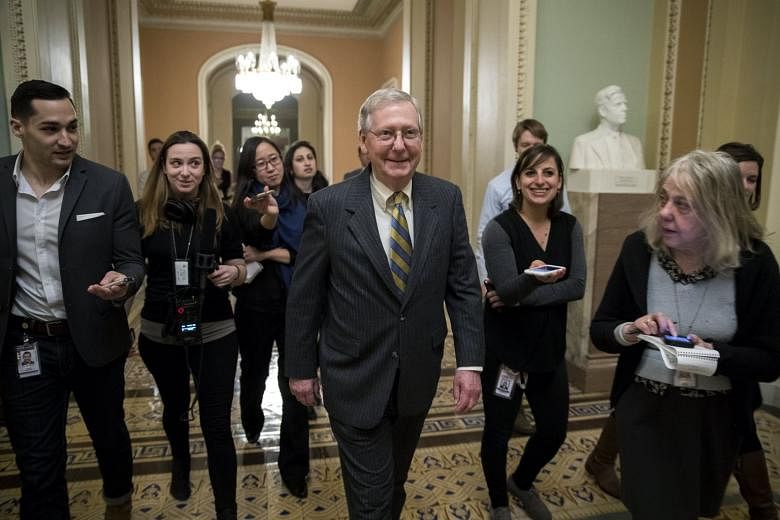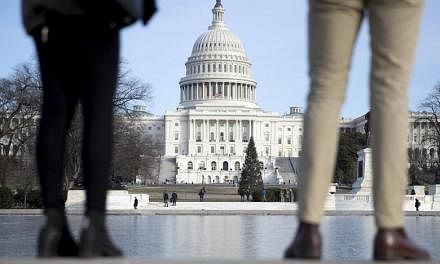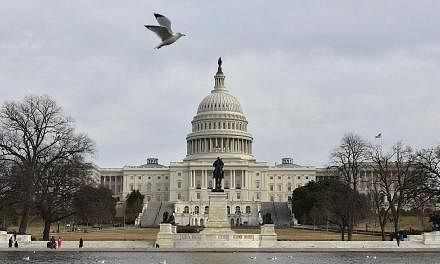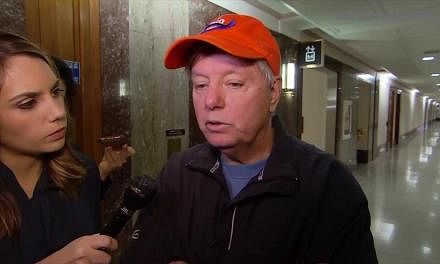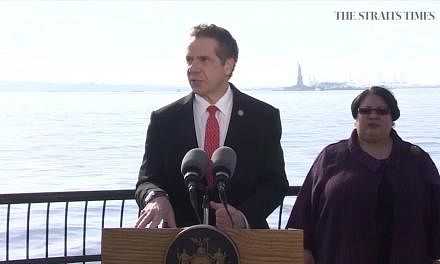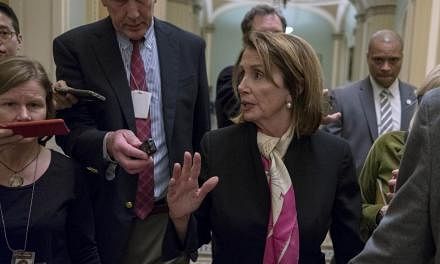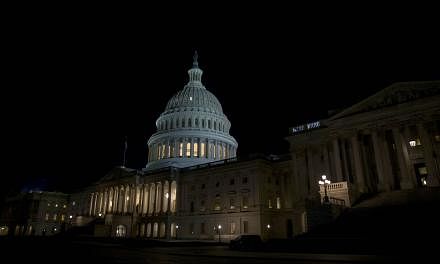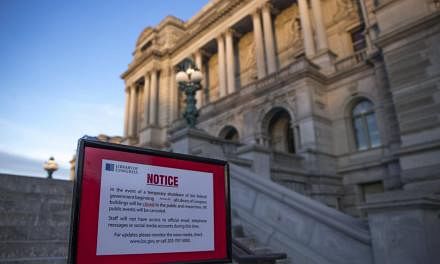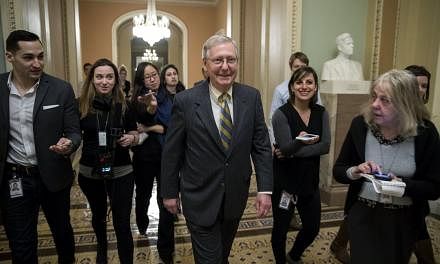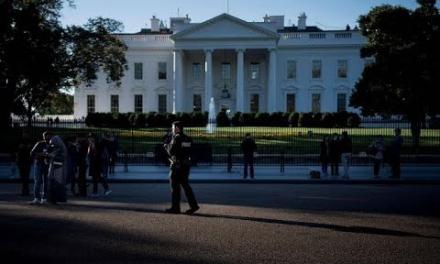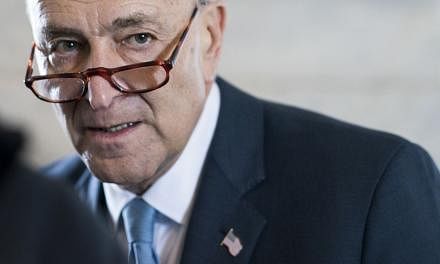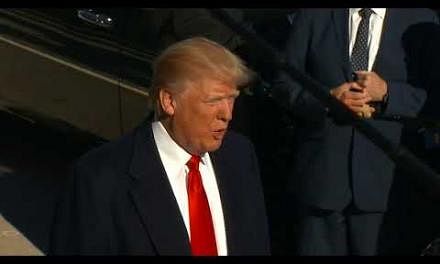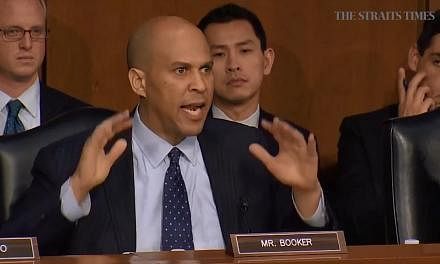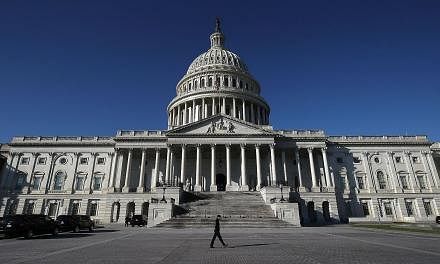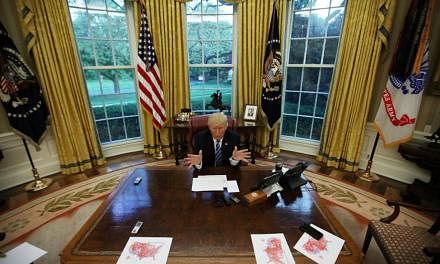WASHINGTON - The shutdown of the United States federal government from Saturday (Jan 20) indicates not only political partisanship in a divided country, but also deeper dysfunction in government.
Nearly four months into fiscal year 2018, Congress has passed none of the spending Bills it is supposed to enact. Instead, lawmakers have passed stopgap funding measures known as Continuing Resolutions (CRs), which extend funding for anything between a day and a year.
The last CR , in December, was to fund the government until Friday.
According to the Congressional Research Service, there have been 18 government shutdowns since 1976 - under both Republican and Democratic presidents.
"Far from being a new symptom of present-day Washington dysfunction, Congress' chronic inability to follow its own appropriations process goes back decades," says Pew Research.
Dr Glenn Altschuler, professor of American studies at Cornell University, told The Straits Times: "Before the 1990s there was a tacit understanding that it was not appropriate, right or good to stop the government from functioning."
"But now, funding the government has become a political tool," he said.
Roughly 850,000 federal government employees across several agencies will be placed on furlough - leave of absence - from Monday, which means they could lose their pay for the days they cannot work. But some may get paid later, when a funding Bill is eventually passed.
Essential services remain functional. Social security cheques are mailed, and US Post Offices and national parks remain open.
Though President Donald Trump has insisted that the military's funding is at stake, the military as an essential service will not miss a beat, although some personnel will be placed on furlough.
But the shutdown will have greater impact if it drags on for several weeks. The last shutdown in 2013 lasted 15 days and according to reports, cost the country 6.6 million work days. That shutdown was blamed on the Republicans by then-President Barack Obama.
With shutdowns weaponised for political effect, both parties seek to extract maximum mileage and blame each other.
Mr Trump predictably lashed out on Twitter on Saturday morning, saying: "Democrats are far more concerned with Illegal Immigrants than they are with our great Military or Safety at our dangerous Southern Border. They could have easily made a deal but decided to play Shutdown politics instead."
The Democrats wanted continued protection for some 700,000 children of illegal immigrants. Now grown up and studying or working in the US, the so-called Dreamers were given protection by Mr Obama. But Mr Trump rescinded that programme, saying Mr Obama had exceeded his authority, and left it to Congress to find a solution.
The American public is in favour of allowing the Dreamers to stay in the US. The Democrats have used the issue as leverage, as Mr Trump in turn insists he wants funding for his wall on the Mexican border to keep out illegal immigrants and drugs - a key campaign promise.
The practice of bundling several issues into a so-called "omnibus" measure and the bitter fight over Mr Trump's base-pleasing crackdown on immigration produced the impasse as grandstanding met gridlock under a mercurial President in Washington last week.
Both parties are gambling that the public will blame the other more.
Forty-eight per cent of Americans will blame the president and the Republican Party for a government showdown, according to an ABC News/Washington Post poll on Friday. Twenty eight per cent said they would blame the Democrats; 18 per cent said they would blame both.
Separate polls show that a majority favour allowing the 700,000 Dreamers to stay, but do not think it is worth shutting down the government to get it done.
A shutdown generally elicits little sympathy from the public, and in fact contributes to an increasing cynicism about the political process in Washington.
"There's a level of embarrassment about the ability of the United States Congress to do its job," Democratic Senator Heidi Heitkamp of North Dakota told the website Vox.

